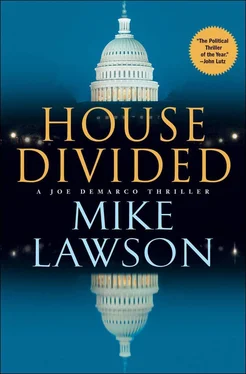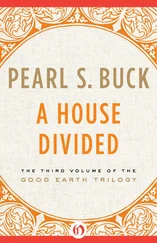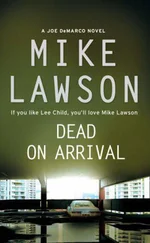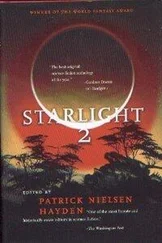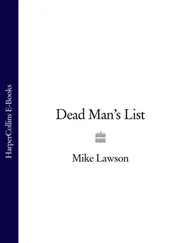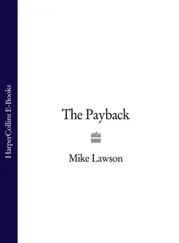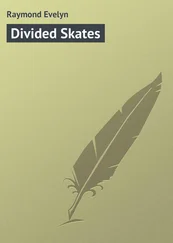Mike Lawson - House Divided
Здесь есть возможность читать онлайн «Mike Lawson - House Divided» весь текст электронной книги совершенно бесплатно (целиком полную версию без сокращений). В некоторых случаях можно слушать аудио, скачать через торрент в формате fb2 и присутствует краткое содержание. Жанр: Триллер, на английском языке. Описание произведения, (предисловие) а так же отзывы посетителей доступны на портале библиотеки ЛибКат.
- Название:House Divided
- Автор:
- Жанр:
- Год:неизвестен
- ISBN:нет данных
- Рейтинг книги:3 / 5. Голосов: 1
-
Избранное:Добавить в избранное
- Отзывы:
-
Ваша оценка:
- 60
- 1
- 2
- 3
- 4
- 5
House Divided: краткое содержание, описание и аннотация
Предлагаем к чтению аннотацию, описание, краткое содержание или предисловие (зависит от того, что написал сам автор книги «House Divided»). Если вы не нашли необходимую информацию о книге — напишите в комментариях, мы постараемся отыскать её.
House Divided — читать онлайн бесплатно полную книгу (весь текст) целиком
Ниже представлен текст книги, разбитый по страницам. Система сохранения места последней прочитанной страницы, позволяет с удобством читать онлайн бесплатно книгу «House Divided», без необходимости каждый раз заново искать на чём Вы остановились. Поставьте закладку, и сможете в любой момент перейти на страницу, на которой закончили чтение.
Интервал:
Закладка:
Claire’s techs rapidly discovered that one of the people talking was an Iranian but now a U.S. citizen. This was Dr. Ahmed Aziz, a metallurgist who worked for Owens Corning. Aziz was talking to another Iranian, also a metallurgist, and these two smart fellows were trying to reverse-engineer a particular component-a cast alloy able to withstand high temperatures in a radiation-rich environment. After consulting with various experts, Claire’s techs concluded the casting under discussion was part of a gizmo used to speed up the enrichment of uranium-enriching uranium being one of the crucial steps in building a nuclear weapon.
Normally, if the U.S. government even suspected that Dr. Aziz was talking to a nuclear scientist in Iran, this would have been sufficient information to obtain a FISA warrant. And that’s what Dillon needed-a warrant-so he could legally record more of Dr. Aziz’s conversations. If he had such a warrant, the next time Dr. Aziz phoned his bomb-making pal, the FBI would have just cause to detain Aziz and question him and do all those things civil libertarians objected to but which made perfect sense to Dillon if you were trying to keep Iran from becoming a nuclear power. But since Dillon had recorded Aziz’s initial conversation illegally, this wasn’t possible.
So Dillon fudged. Just a bit.
There’s a mosque in Houston known to nine of the sixteen U.S. intelligence agencies. The mosque funnels money to al-Qaeda and the U.S. government allows this to occur because it can learn more by following the money trail than it can by arresting the money movers. This being the case, one of Claire’s people hacked into the computer of the bank where Dr. Aziz kept his money and made it appear as if money had been sent from the man’s checking account to the mosque. The FBI saw where the money came from, obtained a warrant to eavesdrop on Dr. Aziz’s communications, and asked for the NSA’s help-and Dillon pretended to be surprised when they did. And when Dr. Aziz made his next phone call, Dillon’s people-now operating in a completely legal fashion-recorded him and the FBI whisked Dr. Aziz off to a cell. After three days, Aziz admitted that he had indeed been trying to help the Iranians build a bomb. “Why shouldn’t a good Muslim country have the right to protect itself?” the scientist said.
Unfortunately, Dr. Aziz’s family obtained a very loud lawyer who pointed out to the media that the metallurgist was a virtual pillar of his community and he had been disappeared by his own government. Where are we living, the lawyer screamed, Nazi Germany? And because the media listened to the lawyer, the lawyer was able to get Dr. Aziz’s congressman to listen to him as well. And the congressman-delighted to have all the free publicity-called over various people from the NSA, the FBI, and the departments of Justice and Defense, and asked them to explain why they had incarcerated his constituent without the benefit of a trial.
So the FBI explained. They said they had detained Dr. Aziz as a suspected terrorist under the provisions allowed by the Patriot Act, and they did this because he was helping Iran build a nuclear weapon. And, they pointed out, Dr. Aziz confessed. He confessed because you tortured him! the congressman shouted. We didn’t torture him, the FBI said, we just didn’t let him sleep too well for a couple of days.
Then there were problems with the legally obtained intercepts. There were some questions regarding the accuracy of the translation, but the biggest problem was Owens Corning, Dr. Aziz’s employer. Owens Corning, unfortunately-at least it was unfortunate from the FBI’s perspective-utilizes high-temperature castings to make fiberglass, which is in turn used for insulating houses. Dr. Aziz was now claiming that’s what he’d really been talking about with his Iranian buddy-how to make fiberglass-and it was only because he was tortured that he’d said otherwise. Bullshit, the FBI said, and complex technical arguments were given to show Aziz was lying, but because the arguments could only be understood by egghead scientists, and because Dillon couldn’t let the FBI have the recording the NSA had illegally made, Dr. Aziz and his congressman eventually won the day.
But Dillon Crane was satisfied, even though Dr. Aziz would most likely win a very large judgment in his upcoming lawsuit related to all the mental and physical anguish that he’d suffered. He was satisfied because he’d identified a traitor and because the U.S. government now knew the Iranians needed a bomb-making component that they couldn’t currently buy or build. Dillon knew that this wouldn’t stop Iran from eventually building a nuclear weapon but it would slow them down, and that was the best he could do.
Dillon escorted Aaron Drexler back to his office and pointed the lawyer-scientist to a chair in front of his desk. “Coffee?” he offered. “A soft drink, perhaps?”
Drexler just shook his head, his hooded eyes taking in Dillon’s office.
“I’m curious, Mr. Drexler. What’s the relationship between Aziz and this review you’re conducting? We did everything by the book on Aziz.”
Drexler smirked and repeated the statement made in the attorney general’s office. “There are rumors the NSA knew more about Dr. Aziz’s activities than you could have possibly discovered via the legally obtained recordings submitted into evidence. The president is concerned about those rumors.”
“I see,” Dillon said, although he’d heard no such rumors, and if there had been any he certainly would have. “So exactly where would you like to start? Mi casa, su casa, as they say.”
That would be the day.
Drexler ignored the question. He was staring at a painting on one wall of Dillon’s office.
“Is that a Picasso?” he asked.
“Yes. From his blue period.”
“That’s an odd size for a print.”
“A print?” Dillon said. “Oh, no. That’s the original. My mother gave it to me when I graduated from high school.”
“Your mother gave you a Picasso? When you were eighteen?”
“Sixteen, actually. But, yes, she was quite fond of me. My brother only received a Grant Wood when he graduated, but then his grades weren’t quite as good as mine.”
Drexler frowned, not sure if Dillon was pulling his leg. He looked away from the Picasso, and said, “What I want is a random sample of a few intercepts, and all warrants and reports associated with those intercepts. To narrow things down, I’d like to see transmissions originating in the D.C. metro area on… oh, let’s say, April nineteenth. That day’s as good as any.”
Dillon Crane played poker at the professional level. Had he not done so, he was quite sure the shock of what he’d just heard would have registered on his face.
Dillon called in a few mid-level managers and had them start compiling the records Drexler asked for, and then he phoned Clyde Simmer, one of his poker-playing friends. Clyde worked at the Department of Justice.
“Do you know a man named Aaron Drexler?” Dillon asked, when Clyde came on the line. He wouldn’t have been surprised if Clyde didn’t know Drexler; Justice was a big place.
But Clyde did. “He slinks,” Clyde said.
“Pardon me?” Dillon said.
“He slinks. He’s a slinker. I mean, I really don’t know him all that well but that’s the impression I get, that he’s an arrogant bastard who slinks about looking for an opportunity to stab someone in the back. There’s something ferret-like about him, but I’ve been told he’s quite bright and not afraid to work. “
“Is that it?” Dillon said.
“Well, let’s see. I know he came to us from some other agency, some odd place for a lawyer to have come from, but I can’t remember which one.”
“The Pentagon,” Dillon said.
Читать дальшеИнтервал:
Закладка:
Похожие книги на «House Divided»
Представляем Вашему вниманию похожие книги на «House Divided» списком для выбора. Мы отобрали схожую по названию и смыслу литературу в надежде предоставить читателям больше вариантов отыскать новые, интересные, ещё непрочитанные произведения.
Обсуждение, отзывы о книге «House Divided» и просто собственные мнения читателей. Оставьте ваши комментарии, напишите, что Вы думаете о произведении, его смысле или главных героях. Укажите что конкретно понравилось, а что нет, и почему Вы так считаете.
